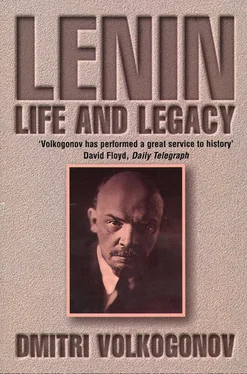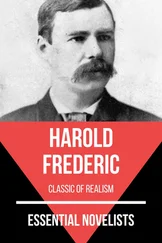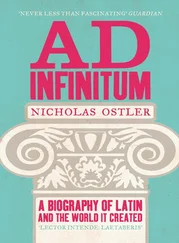In effect, Lenin used Chernyshevsky to ‘russify’ Western Marxism, which had too much of the liberal and democratic and too little ‘class war’. The split that was to take place among the Russian social democrats would be precisely over attitudes to democracy, to legal, parliamentary means of struggle, to the place of political parties in a democracy and the strength of liberal persuasion. Lenin’s forebears were, thus, those thinkers who fostered notions which reinforced the coercive, harsh, class elements in Marxism. It would therefore be true to say that Lenin was guided by pragmatic considerations in becoming a revolutionary. While worshipping classical Marxism, he could borrow concepts and ideas, arguments and rebuttals from Chernyshevsky, Peter Tkachev, Sergei Nechaev, Mikhail Bakunin, Carl Clausewitz, Peter Struve, Peter Lavrov and Alexander Herzen. He reinforced his ‘mainline’ Marxism with everything that made that teaching uncompromising, harsh and radical. Recalling the first weeks of the Soviet regime, Krupskaya wrote: ‘Closely studying the experience of the Paris Commune, the first proletarian state in the world, Ilyich remarked on the pernicious effect of the mild attitude of the workers and proletarian masses and the workers’ government towards their manifest enemies. And therefore, when speaking about struggling with enemies, Ilyich always “tightened the screws”, so to speak, fearing the excessive mildness of the masses, as well as his own.’ 46
The presence of Nechaev among the names of Lenin’s sources should give pause. Both Marx and Engels had condemned Nechaev’s doctrine of individual terror – just as Lenin himself would on numerous occasions. But Nechaev was more than an advocate of terror, he was synonymous with conspiratorial politics, entailing secret plans for the overthrow and merciless extermination of hated authorities and governments. In the terminology of the time, such tactics were called Blanquist, after Louis Auguste Blanqui, a radical activist in France during the 1830s and 1840s. While condemning this approach, Lenin would unhesitatingly resort to it at decisive moments. As Plekhanov wrote in 1906: ‘From the very beginning, Lenin was more of a Blanquist than a Marxist. He imported his Blanquist contraband under the flag of the strictest Marxist orthodoxy.’ 47 The Bolshevik Vladimir Bonch-Bruevich recalled Lenin discussing Nechaev, who had been depicted by Dostoevsky in his novel The Possessed , which fictionalized the murder of a student by Nechaev and his ‘Secret Reprisal’ group: ‘Even the revolutionary milieu was hostile to Nechaev, forgetting, Lenin said, “that he had possessed a special talent as an organizer, a conspirator, and a skill which he could wrap up in staggering formulations.”’ He also approvingly quoted Nechaev’s reply to the question of which of the Romanovs should be killed: ‘The entire House of Romanov!’ 48
Vladimir Voitinsky, an economist and active Bolshevik in 1905, recalled discussing Lenin’s abandonment of liberalism in conversations at the time. Lenin used to talk about the need to combat ‘liberal pompous triviality’. ‘Revolution,’ Lenin would say, ‘is a tough business. You can’t make it wearing white gloves and with clean hands … The Party’s not a ladies’ school … a scoundrel might be what we need just because he is a scoundrel.’ 49 Nechaev’s famous dictum, ‘Everything that helps the revolution is moral. Everything that hinders it is immoral and criminal,’ was echoed by Lenin at the III Congress of Communist Youth in 1919 when he said that everything is moral that promotes the victory of Communism. In 1918 he declared to Maria Spiridonova, the doyenne of terrorists and a member of the Socialist Revolutionary Party, that there was no room for morality in politics, only pragmatism.
Lenin adopted Marxism as a weapon, ‘freeing’ it of its ‘liberal’, ‘democratic’ trivialities, because the steel fist of the proletarian dictatorship had no need of gloves. Following the Bolsheviks’ forcible dispersal of the Constituent Assembly in January 1918, Plekhanov, ‘the father of Russian Marxism’, could write in his last article: ‘The tactics of the Bolsheviks are the tactics of Bakunin, and in many cases those of Nechaev, pure and simple.’ 50 The question of who were Lenin’s ideological forebears, therefore, is answered simply: he used anything and anyone if it helped him achieve his aim.
There may be many reasons why Lenin became captivated by Marxism. In my opinion, his powerful and already extremely well informed mind was searching for a universal explanation of human existence. In any event, some time on the eve of 1889, when the family was still living in Kazan, he got hold of the first volume of Capital . It must have been a revelation simply in terms of the scale of its grasp, regardless of its rôle in history. Nietzsche once remarked on the ‘attraction of the distance’, and for the young Lenin, with his radical outlook, Capital ’s historical distance captured his imagination, seeming to lead to the solution to all of life’s eternal and ‘accursed’ questions of justice, freedom, equality, oppression and exploitation. But who introduced Lenin to Marxism?
At the time he was expelled from university, there was a convinced young Marxist, called Nikolai Fedoseev, living in Kazan. Lenin was to meet him only once, nearly ten years later, when they were both on their way to exile in Siberia. Fedoseev had compiled a reading list for social democrats, and Lenin told Gorky in 1908, when they were together on Capri, that ‘it was the best reference book anyone had yet put together’, and that it had helped him find his way through political literature, opening the path for him to Marxism. 51 Lenin’s first known writing was a piece written in 1893 called ‘New Economic Movements in Peasant Life’, in effect a review of V.E. Postnikov’s book The South Russian Economy . 52 The article, which was unsigned, read like a schoolboy’s attempt at Marxist analysis. There is little of Lenin’s own ideas in it and it was rejected by the journal, Russkaya mysl ’. He had greater success with a second review-article, also written in 1893 and similarly unsigned, called ‘On the So-called Question of Markets’, in which he contrasted Marxist and Populist (Narodnik) ideas on the development of capitalism in Russia, in effect arguing that ‘class’ and impersonal historic need had replaced the ‘critically thinking individual’. This article was also not published, but Lenin read it at a meeting of Marxist students in St Petersburg in the autumn of 1893, and received the praise of the engineering students present.
Lenin soon went beyond the guidelines of Fedoseev’s catalogue, and it is evident from his earliest, as well as his later, works that two main ideas in Marxism dominated his thinking: classes and class struggle, and the dictatorship of the proletariat. No other Marxist theorist took these concepts as far as Lenin, despite the fact that Marx had said very little about the dictatorship. As a social democrat, Lenin did not limit himself to commenting on and recapitulating the interpretations given by Marx and Engels, but formulated his own ‘classical’ definitions. For instance, on rural poverty, he asked, ‘What is the class war?’ and gave the answer, ‘It is the struggle of one part of the people against another, the mass of the rightless, oppressed and toiling against the privileged, oppressing and parasitic, it is the struggle of the workers or proletarians against the owners or the bourgeoisie’. 53 Like so many other thinkers and revolutionaries, Lenin would fall into the trap of thinking that it was only necessary to take everything from the ‘haves’ and redistribute it ‘fairly’ and all would be well. It was the eternal mirage. As the philosopher Nikolai Berdyaev observed: ‘Many times in history the lower orders have risen up and tried to sweep away all hierarchical and qualitative differences in society and to install mechanical equality … But class is quantity and man is quality. Class warfare, elevated to an “idea”, conceals the qualitative image of man … Thus the idea of class kills the idea of man. This murder is carried out theoretically in Marxism …’ 54
Читать дальше












